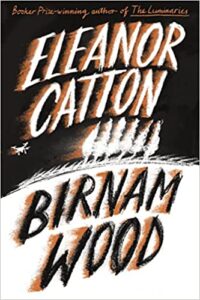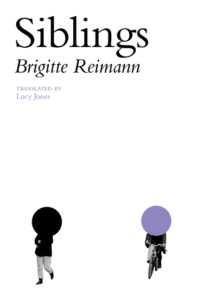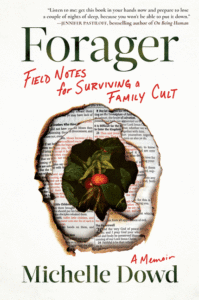What Should You Read Next? Here Are the Best Reviewed Books of the Week
Featuring new titles by Eleanor Catton, Jenny Odell, Brigitte Reimann, and More

Eleanor Catton’s Birnam Wood, Jenny Odell’s Saving Time, and Brigitte Reimann’s Siblings all feature among the Best Reviewed Books of the Week.
Brought to you by Book Marks, Lit Hub’s “Rotten Tomatoes for books.”
*
1. Birnam Wood by Eleanor Catton
(Farrar, Straus and Giroux)
11 Rave • 3 Positive • 1 Mixed • 1 Pan
Read an excerpt from Birnam Wood here
“Bold, ambitious … A grand, chilling thriller tightly bound by inescapable concerns … Birnam Wood moves at a faster clip with arguably higher stakes. Make no mistake: It’s a book that grips you by the throat until its final paragraph. Catton successfully scorches the earth with her prose … Little feels certain or safe. The literary novel binds itself with a genre thriller in Catton’s hands … Free to play with form, Catton winds methodically through the minds of her characters … I’ll unabashedly state that Birnam Wood is a brash, unforgettable novel.”
–Lauren LeBlanc (The Boston Globe)
2. Siblings by Brigitte Reimann, trans. by Lucy Jones
(Transit Books)
3 Rave • 4 Positive
“Reimann’s own literary style is an attempt to find space for subjectivity. Lucy Jones’s translation excellently captures the dry wit, expressionistic boldness and seductively odd rhythms that make the original German so charismatic. Elisabeth is spiky and appealingly flawed … There is something intoxicating about Reimann’s dense, jagged prose.”
–Alexander Wells (The Guardian)
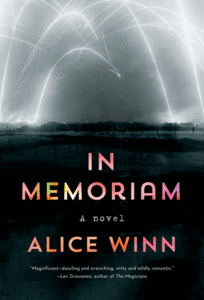
3. In Memoriam by Alice Winn
(Knopf)
4 Rave • 2 Positive
“Winn’s prose is percussive, driving the story forward with a mix of Edwardian masculine sentimentality and the improbable plotting of a period romance … The book is cut into the shape of a thousand cliffhangers, and although once or twice it strains credulity, I couldn’t put it down … Winn’s exquisite pacing lives in her syntax as much as her plot, giving vim and vigor to every line.”
–Hugh Ryan (The New York Times Book Review)
**
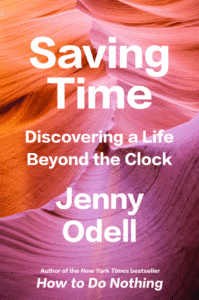
1. Saving Time: Discovering a Life Beyond the Clock by Jenny Odell
(Random House)
3 Rave • 3 Positive • 2 Mixed • 1 Pan
“A meticulously researched, mentally stimulating scurry down the time-and-space rabbit hole … Explores its titular subject from every possible angle … Many of the hypotheses Odell brings forth are nothing new … Don’t get me wrong; Odell’s rehashing of these often debated topics doesn’t make the book any less constructive or worthy of readers’ attention … It’s dense. Odell’s style leans heavily toward stream of consciousness and making high-level, rapid-fire connections that can take a beat to follow, so jump around if you must. But take it all in. As with many things in life, the book is worth savoring—even if it takes you a while to complete.”
–Alexis Burling (The San Francisco Chronicle)
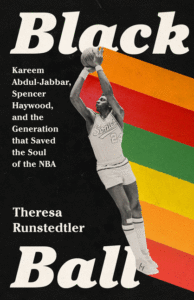
2. Black Ball: Kareem Abdul-Jabbar, Spencer Haywood, and the Generation That Saved the Soul of the NBA by Theresa Runstedtler
(Bold Type Books)
4 Rave
“[A] wise, engaging and frankly overdue survey of a crucial moment in sports history … The stroke of honesty that guides Black Ball is its insistence that our perceptions of race affect how we view the game, and that you simply can’t divorce sports from the times in which they are played — and the audiences for whom they’re played … Black Ball is a timely read at a moment when professional athletes are more outspoken than ever on social issues, and when it’s clear that sports and society are inextricably linked.”
–Chris Vognar (The Los Angeles Times)
3. Forager: Field Notes for Surviving a Family Cult: A Memoir by Michelle Dowd
(Algonquin)
2 Rave • 2 Positive • 2 Mixed
Read an excerpt from Forager here
“By its midpoint Forager fully becomes the trauma memoir only hinted at in the opening pages … Because the book is so focused on the 10 years during which she was fully a member of the Field, an atmosphere of ambivalence hangs over the narrative … Yet Dowd’s story surfaces a bitter irony. The wisdom and resolve she required to leave the Field—her survival skills—were taught through lessons designed to keep her there. The book is stronger in some ways for leaving that irony unspoken … Every chapter in Forager opens with a brief description of a native plant she knew well in the forest: pine cones, succulents, berries, weeds, lichen. Though short, they do some serious metaphorical labor, trained on matters of hardiness and sustenance.”
–Mark Athitakis (The Los Angeles Times)
Previous Article
The Hard Won Lessons of Lesley Arfin’s Dear Diary 15 Years LaterNext Article
Xiaolu Guo on Translatingthe Self


